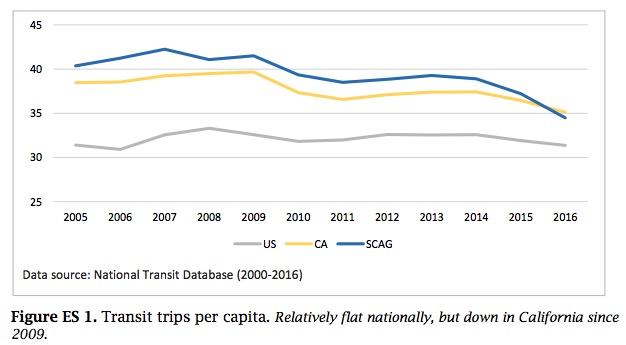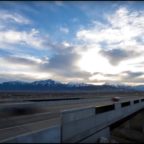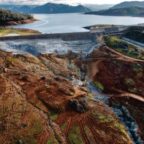
In the last ten years transit use in Southern California has fallen significantly. This report investigates that falling transit use. We examine patterns of transit service and patronage over time and across the region, and consider an array of explanations for falling transit use: declining transit service levels, eroding transit service quality, rising fares, falling fuel prices, the growth of Lyft and Uber, the migration of frequent transit users to outlying neighborhoods with less transit service, and rising vehicle ownership. While all of these factors probably play some role, we conclude that the most significant factor is increased motor vehicle access, particularly among low-income households that have traditionally supplied the region with its most frequent and reliable transit users.
View this complete post...
Tags: CA, California, Car ownership, Falling Transit Ridership, Fuel prices, ITS, Los Angeles, SCAG, Southern California Association of Governments, UCLA, UCLA Institute of Transportation Studies
Posted in
Congestion, Infra Views, Local, Public Transportation, Transit
Comments Off on Falling Transit Ridership: California and Southern California























 RSS Feed
RSS Feed